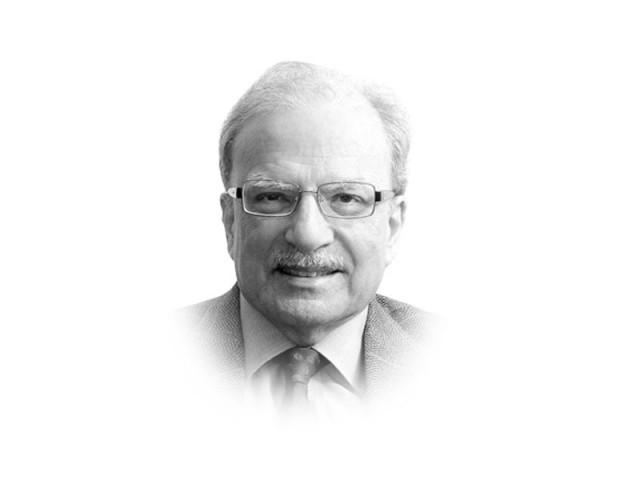The unpredictable Trump
'Now he needs a strategy to turn a moment into a manifesto'

The writer is a former caretaker finance minister and served as vice-president at the World Bank
It was in order to save the globe from superpower unpredictability that the world’s nations, following the end of the WWII, crafted an international order that produced a predictable environment. If a country faced financial stress, it could go to the IMF to get temporary relief. In return for help, it would follow the IMF’s advice to make adjustments to the way it managed the economy, that way future disruptions would be avoided. If a country did not possess enough resources of its own, it could approach the World Bank and several regional development banks to get help. Most of the funding for operations by the IMF and the development banks came from the US and to a lesser extent from other rich countries.
If there were disputes among trading partners, they could appeal to the WTO to resolve them. The WTO operates according to the rules and procedures crafted by all nations working together. These institutions along with several others in the UN system produced predictability. The UN High Commission for Refugees minded the millions of refugees displaced by the many small wars that were being fought across the world. Another UN agency, Unicef, helped millions of deprived children across the world with food, medicines, clothing and shelter. But all these institutions are of no use to Trump’s America. This is the global order that Trump set out to disrupt. He succeeded even before he finished his first 100 days in office. The new administration has promised to significantly reduce the funds it provides them.
The Asian continent was by far the most affected world region as President Trump continued to implement his unpredictable resolution. It has three of the world’s largest nations and all three — China, Russia and India — are busy trying to figure out which way Trump and his administration is headed. In less than a week, Trump took actions that surprised the world and forced many capitals around the world to go back to the drawing board. On April 7th, while Chinese President Xi Jinping was still with him at the seaside resort of Mar-a-Lago, Trump hit an airbase in Syria with 59 missiles to punish the regime of President Bashar al Assad for using chemical weapons against Syrians. The following day, he agreed with President Xi to launch a 100-day plan to ease tensions between the two countries on trade issues. On April 13th, the Americans dropped the deadliest non-nuclear bomb ever used on an Afghan mountain range bordering Pakistan.
Three days after launching a missile attack on Syria, Trump ordered a well-equipped aircraft carrier to head towards North Korea. This was his reaction to the provocation by Kim Jong-un, North Korea’s young and equally unpredictable dictator, who tested simultaneously a number of ballistic missiles. If the Americans use the flotilla headed towards his country, Pyongyang would respond by attacking the US west coast with missiles loaded with nuclear weapons. And a day after the American ships were ordered to head towards North Korea, Rex Tillerson, the US Secretary of State, arrived in Moscow with the expectation to discuss world affairs with President Vladimir Putin. The president seemed reluctant to issue an invitation to America’s top diplomat. They met but did not agree on a whole lot of issues. Only a few months earlier, Putin had pinned a high award on Tillerson’s chest when the latter was the head of Exxon, the giant American oil firm.
The American foreign policy establishment — the people who man Washington’s many think tanks and are often called upon to join the senior ranks of administrations — was struggling to define what could be termed a Trump doctrine. There was agreement that lack of predictability cannot be a strategy. Anne-Marie Slaughter, one prominent member of this establishment, suggested that by changing “America First” slogan used by Trump in his campaign and in his inaugural address to “Americans First” could serve the purpose. This will require the commitment that “America’s national interest includes the defense of universal values, the values the US was founded on and that its soldiers try hard to uphold. Part of the reality of the wars in Iraq and Afghanistan is how hard it is to figure out how to be the good guys in cultures and conflicts we do not fully understand. Against this backdrop, Trump’s decisiveness and precision in punishing Assad offered a refreshing moment of moral clarity, notwithstanding the risks. Now he needs a strategy to turn a moment into a manifesto.”
Published in The Express Tribune, April 17th, 2017.
Like Opinion & Editorial on Facebook, follow @ETOpEd on Twitter to receive all updates on all our daily pieces.















COMMENTS
Comments are moderated and generally will be posted if they are on-topic and not abusive.
For more information, please see our Comments FAQ